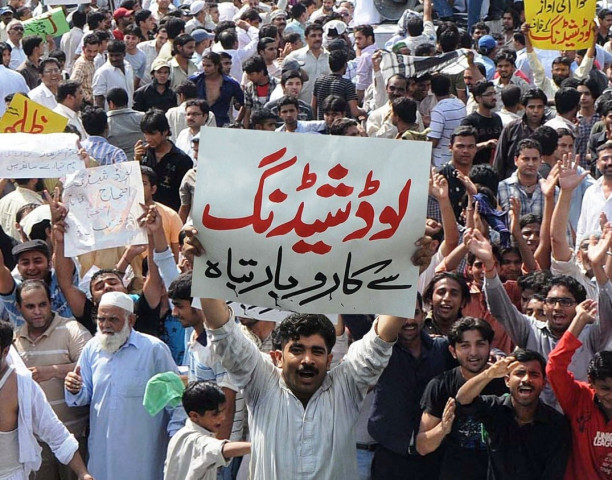Preview of 2012: Solve the energy crisis now or go home
If the government is smart, it will call for elections before the crisis hits the acute phase.

There is absolutely no point in beating about the bush anymore. Either the government will solve the energy crisis in 2012 or it will lose the elections. And since it cannot solve the entire crisis in one year, it has no choice – if they are politically shrewd – but to go ahead and call the elections before the crisis hits the ‘catastrophic’ phase.
Some of the more sardonic analysts believe that the crisis has already hit that catastrophic phase. The government is defaulting on its obligations to the energy companies, the gas supply to all industries in Punjab has been indefinitely shut down and the government is effectively moving to end the use of compressed natural gas (CNG) as a fuel for vehicles. To those who say that this is bad, I will say this: never ask if it can get worse, because in Pakistan, it always can.
Let us take a look at some of the numbers: about two years ahead of schedule, gas demand has shot up to 5,100 million cubic feet per day (mmcfd) while supply is still at 4,100 mmcfd and falling. The pace of its fall will only increase as the years go on, while that demand figure will continue to rise faster and faster.
Meanwhile, as the country runs short of gas, the government insists on supplying some of the most politically significant constituencies – domestic consumers, industry and CNG – at the expense of the power sector. Petroleum Minister Asim Hussain has succeeded at least partially in reversing this policy madness, but was not able to do so until the crisis hit a particularly acute phase. Paradoxically, as the shortage gets worse next year, his hand will be strengthened in his efforts to reform the sector.
So why is gas so important? Because it costs about Rs5 per kilowatt-hour to produce electricity using a gas-fired power plant and about Rs18 per unit using an oil-fired plant. The average consumer in Pakistan is paying about Rs7 per unit right now (Rs9 per unit in Karachi). If the fuel mix is changed overwhelmingly to oil, the power companies’ revenues will not be enough to pay for their expenses. To run their power plants, the power companies need at least 1,600 mmcfd of gas. Currently, they are getting less than 300 mmcfd.
The government gets around this mathematical conundrum by offering a blanket subsidy to the power companies, but seems to forget just how expensive this can be. Last year, the government spent Rs300 billion on power subsidies, and even that was not actually enough to clear the circular debt that has accumulated on the balance sheet of almost every single energy company, financially crippling the entire energy sector.
The power companies’ response to low revenues is to reduce their production levels, which is why we have an average of eight hours of power outages throughout the country. These numbers are going to get worse next year and we may have reached the tipping point where the country will effectively have to be shut down.
We reached that point very briefly in August 2011. For two miserable days, economic activity in the entire country came to a virtual standstill as Pakistan State Oil refused to supply more oil to the power companies without getting at least some of the Rs155 billion they owed PSO at the time. That misery will only get more frequent next year.
The crisis, of course, is not hopeless. There is a fix to the problem but it requires taking on some very powerful lobbies and making incredibly tough choices – two things that generally do not happen before an election. Let us hope that the election happens soon so that at least we can push for it after the next government comes in.
Published in The Express Tribune, January 1st, 2012.


















COMMENTS
Comments are moderated and generally will be posted if they are on-topic and not abusive.
For more information, please see our Comments FAQ